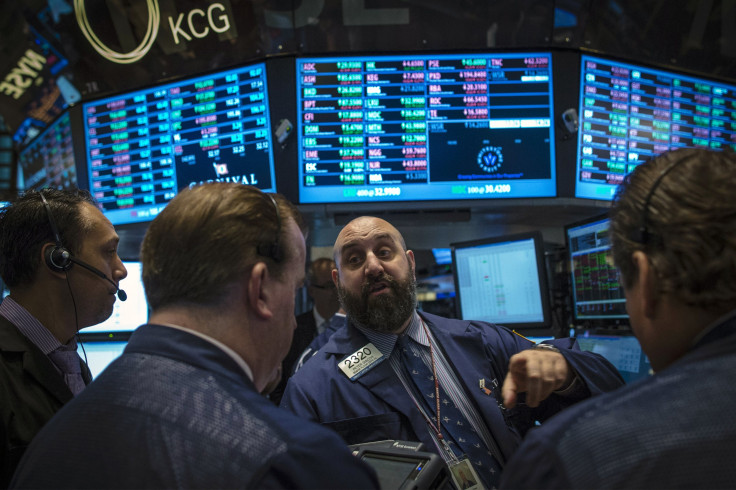Markets Unfazed By Taper News From Fed: Why?

Stock and bond markets were mostly unfazed on Wednesday and again Thursday morning by the Federal Reserve’s decision to slow stimulus in January, surprising some analysts who'd forecasted a quick stock market retreat on the news.
In fact, the Dow Jones Industrial average hit a record high, its 45th record in 2013, while the S&P 500 also hit a record in trading, according to the Wall Street Journal. Bond yields on 10-year U.S. Treasury bonds, a key benchmark, didn’t spike to over 3 percent, as some feared. Bond markets were mostly calm in the aftermath of Wednesday’s Federal Open Market Committee statement.
Here are three reasons why markets shrugged off Fed chair Ben Bernanke’s final comments and actually rallied in the face of definitive taper talk.
Some Certainty, Finally
The actual announcement offered certainty to markets and investors, who have been second-guessing a taper timetable since the Fed first hinted at the move earlier this summer. Those initial remarks dropped global markets worldwide, since the extent and timing of a taper were left unclear to an economy already used to stimulus.
Guessing when a gradual cutback from $85 billion in monthly bond purchases might start became popular sport among economists and analysts, who heralded the event as arguably the key U.S. economic event of 2013.
Now, markets know both the extent and likely timing of tapering, with a minor $10 billion monthly cutback at first. Regular monthly decreases, assuming strong economic data, allow investors to take account of tapering as a known factor in the market.
Many markets had already “priced in” tapering, given the months-long break between the initial hints and the final decision. That means positions were established ahead of the game, and the eventual reactions were milder.
Interest Rate Hikes Are Still Far Out
Importantly, the Fed offered markets a point of optimism alongside its scaling back of stimulus. The central bank emphasized that it would not hike interest rates until at least 2015. Even that depends on unemployment falling below 6.5 percent, and other factors like inflation.
“The Fed was emphatic in its guidance that interest rates will stay low for some time. That gave the market some comfort,” BlackRock Inc.’s (NYSE:BLK) chief investment officer, Russ Koesterich, told the Journal.
“This monetary policy announcement is the start of a very long process of normalization in interest rates,” wrote PNC Financial Services Group Inc (NYSE:PNC) economists in a note on Thursday. “If anything, the FOMC has pushed out when it expects to start raising the funds rate.”
Many viewed the promise on interest rate hikes as more cautiously worded and likely to stay low longer, as a sweetener offered in tandem with the ostensibly bearish tapering news.
“Given the still-benign outlook for U.S. monetary policy over the next couple of years, this sanguine [market] response is a logical one that sits comfortably with our own forecasts,” wrote Capital Economics researchers in a Thursday report. “Equity prices had already fallen back in recent weeks, creating the scope for a 'relief' rally.”
Bernanke emphasized at his news conference on Wednesday that U.S. monetary policy was still broadly accommodative, since asset purchases have yet to end and may only end officially at the end of 2014. Interest rates are still very low compared to historical levels.
As IHS Global Insight economist Paul Edelstein put it: “The Fed didn’t want to reduce the overall level of stimulus that it is providing to the economy. It simply wanted to exchange a stronger commitment to low interest rates for less bond buying. Early indications from markets suggest that the Fed has successfully engineered this switch."
Signals That The Economy Is Better
For many, markets rallied partly because the Fed’s decision and remarks signaled a stronger U.S. economy, a prospect investors and companies may already believe in.
“Markets are correctly viewing 'Taper Lite' as a vote of confidence for the U.S. economy, and are expecting that profits will continue to improve,” read the PNC report.
Strong recent jobs data and startling figures on housing starts in November are cause for economic confidence. U.S. housing prices have recovered steadily this year.
Some, however, think that equity markets are due for a correction in 2014 if multiple highs hit this year aren’t sustainable and aren’t reflected by actual earnings growth. The Dow is up 23 percent this year, while the S&P 500 is up 27 percent. Underlying economic growth has been weaker than stock market strength, which has been remarkable in 2013.
“In recent weeks, there has been a growing perception that policymakers have been unduly cautious about cutting back, and the resolution of fiscal policy for the coming year erring toward less restraint also removed a residual source of downside risk,” wrote Citigroup Inc. (NYSE:C) analysts in a note on Wednesday.
Congress has finally pulled together to make solid progress on budget deals, reducing fiscal uncertainty and dysfunction from several weeks ago, a key factor in improving economic prospects cited by Bernanke.
The Fed foresees better economic growth in the U.S. in 2014, edging up slowly to 2.6 percent of GDP in 2014.
© Copyright IBTimes 2025. All rights reserved.






















